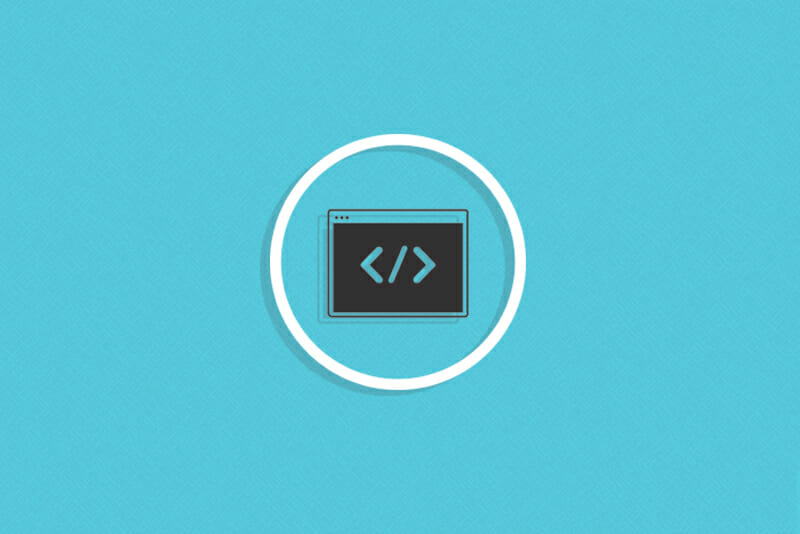How Long Will It Take Me to Learn How to Code?
Time is money, right?

Working in tech, learning new skills, becoming a freelancer: It sounds great. . .but you have a lot going on. If you’re going to invest time into learning new skills, there needs to be a significant payoff, and you need to be able to fit it into your calendar. That rush you feel from visions of a high-paying, creatively fulfilling job can lead to a crash when you think about the logistics of switching careers. How long does it take to learn to code? And what if you specifically want to learn how to code online?
After talking to three professionals about their experiences with coding, I found that when it comes to careers in tech, a better question to ask is: How long does it take to get started?

How Long Does It Take to Learn to Code Online?
Short answer: As little as three months
Kevin Ng, Tech Lead at Wildebeest, says to remember that learning to code is a subjective process. Since tech careers are all about flexibility, there isn’t one rigid path you must follow. Your learning curve will depend a lot on your goals and aspirations. A career as a freelance web designer and a career as a software engineering manager require different amounts of learning and experience. And that’s great news, because it means you can choose a tech role based on the lifestyle you want.
“If your goal is to quickly learn the basics of coding, your career could be started in as little as three months.” – Kevin Ng, Tech Lead at Wildebeest
If you’re serious about learning to code—and particularly if you learn through doing—Ng recommends starting with a reputable coding bootcamp where you can learn enough basics to get your foot in the door as a junior developer. The advantage to this approach, he says, is that you’ll learn the most current and marketable tech skills in a matter of months. At that point you’ll be ready to hone them in a real job setting.
(Pro tip: You can complete Skillcrush’s coding courses in 3-6 months if you commit to 6-8 hours of study a week)
Still, we’re all busy and scheduling is arguably the most important factor in ensuring you reach your goals. So what’s a good ballpark figure for how long this will take? “It’s an ongoing process to keep up with the changing landscape of programmable technologies,” Ng says. “[But] if your goal is to quickly learn the basics of coding, your career could be started in as little as three months.”
Middle answer: You can learn faster if immersion works for you
Other experts agree with Ng’s approach. Izzy Piyale-Sheard, Community Manager at Lighthouse Labs, a coding bootcamp based in Canada, echoes the idea of using a bootcamp program to catapult yourself into real work. But what’s even more important, he says, is just getting started—in whatever way works for you.
Whether it’s a bootcamp format where you learn the basics through intensive 8-, 10-, or 12-week sessions, or a more gradual introduction through free workshops, meetups, and groups like freeCodeCamp, NodeSchool, and Women Who Code, that initial investment of time will allow you to start your career, at which point you will continue building your skills while getting paid.
At Skillcrush, if you treat our Break into Tech blueprint as an intensive, you’ll learn how to code online in about 8- to 12-weeks depending on if you want to add a WordPress or UX speciality. BIT is meant to serve as a flexible alternative to traditional bootcamps, so it’s also possible to work on it part-time and complete the program within 9 months by working for 6-8 hours a week.
Regardless of what route you choose, the key to learning to code is picking the best schedule and method for you when you’re just getting started. Basically, you just need a little time to learn to speak coding language. From there, a lot of your learning will be ongoing and done in a workplace setting.
Long answer: 20+ years (because learning to code is an on-the-job process)
When I asked him if there was a point in his own career when he felt he’d officially “learned to code,” Piyale-Sheard said that in a lot of ways he feels like he still hasn’t, because that isn’t the point. Even instructors at his coding bootcamp who have been coding for 20 years are constantly learning, he says. Just like any sustainable industry, tech is always evolving—and your skills evolve with it. It doesn’t take much to clear the hurdle from knowing nothing to having a beginner’s skill set, and once you do you’ll be in the position for a new career and a lifetime of learning, creative challenges, and self-improvement.
Wendy Zenone, Application Security Engineer at Lending Club, offers her own example of going from zero to coding in a short time. Zenone didn’t have a technical background before she learned to code. It was through her exposure to tech while working in digital marketing that Zenone realized “coding was the future,” and she enrolled in a 12-week bootcamp course. By the end of it, she was coding a complete piece of software by herself. What was even more valuable, though, was that she built a foundation for a tech career and found the momentum that catapulted her into paid work.
Like Ng and Piyale-Sheard, Zenone is still learning, and she deals with a bit of imposter syndrome even at this point in her career. But she harnesses it for motivation to keep sharpening her tech skills. “If you don’t use it, you lose it, so I’m [always] refreshing my skills,” she says. “If you want to stay relevant in the tech industry, you must continue to learn.”
The big takeaway? Learning to code is a process that will be woven into your entire career. The most important thing is simply to start—and taking that first step is easy.
In fact, you can do it right now. Download the free Ultimate Guide to Coding for Beginners. You’ll learn the difference between web designers and web developers and decide which path is right for you. You’ll also discover exactly which tech skills to learn for which jobs, and you’ll find out how to use them to land a rewarding job you’ll love.





